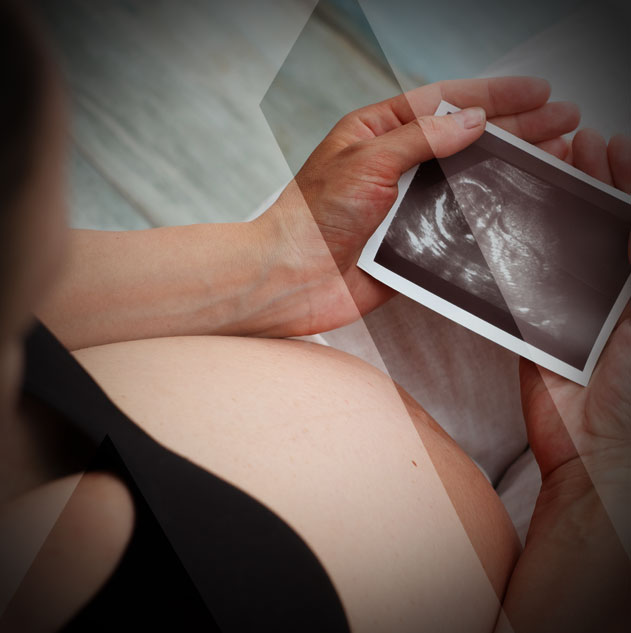Human reproduction is a complex and a delicate process. Some women find difficulties in being pregnant or staying pregnant. In fact, a woman is considered infertile if she is unable to become pregnant after one year or after several attempts or if she has several miscarriages. However, fertility problems can occur in both women and men and can be due to multiple causes. Therefore, understanding the causes of infertility is one of the most important parts of the treatment.
Many stages of pregnancy depend on the proper functioning of the female body.The common causes of female infertility include:
- Endometriosis
- Uterine fibroids
- Blockages or disorders of the fallopian tubes
- Luteal Phase Defects (LPD)
- Anovulation
- Irregular uterine shape
- Pelvic inflammatory disease
- Cancer
- Thyroid problems
- Drugs
- Unhealthy lifestyle
Men can also suffer from many conditions that make pregnancy difficult. In fact, male infertility affects up to half of couples who have difficulties of conceiving. In general, male fertility problems arise from sperm with low motility (speed and the efficiency of movement), morphology (shape) or concentration (overall number). The conditions that can cause male infertility are :

- Diabetes
- Trauma to the testicular region
- Infection
- Chemotherapy and radiotherapy
- Cystic Fibrosis
- Environmental toxins such as lead or pesticides
- Varicoceles, when the veins in the testicles are enlarged causing the overheating of the sperm.
- Taking anabolic steroids
- Smoking
- Alcohol abuse
- The use of testosterone supplements
- An incorrect ejaculation such as a retrograde ejaculation

Certain health and lifestyle factors can increase the risks of having fertility problems. These include :
- Being over 35 years old (for women)
- Being overweight or underweight
- Chemotherapy or radiotherapy
- The excessive use of drugs or alcohol
- Smoking cigarettes
- The failure to obtain the recommended tests for chlamydia / gonorrhea
- History of pelvic inflammatory disease
- An injury to the scrotum and to the testicles
- Overheated testicles (by wearing too tight clothes or always swimming or bathing in hot water)
- Having an undescended testicle : cryptorchidism
When infertility is suspected, both partners in the couple must undergo medical examinations and this after a consultation with the gynaecologist so as to detect the cause of infertility and thus tells you about the adequate fertilization technique.
- The medical chek up for women:
Your doctor will ask you about your medical history and lifestyle. He will also carry out a complete gynaecological examination.
Other tests are also necessary:
A blood test, to detect a possible hormonal problem, to evaluate ovulation, to determine ovarian reserve or to identify a genetic or infectious disease.
An ultrasound to determine the proper functioning of the uterus and both ovaries.
A hysterosalpingography, an X-ray of the internal cavity of the uterus and the fallopian tubes to detect any abnormality.
Possibly, in some cases:
A hysteroscopy which consists of introducing under general or local anaesthesia a thin optical tube inside the uterus, connected to a camera.
A laparoscopy, which consists of introducing an optical tube inside the belly under general anaesthesia to specify the internal relations between the organs. The examination detects the after-effects of infections, uterine malformations, adhesions or endometriosis which may be responsible for fertilization problems.

Men will also undergo several medical examinations to determine the cause of infertility.
- The medical check up for men:
The doctor will also ask your partner about his medical history and lifestyle.
Other tests are also necessary:
The collection of a sperm sample by masturbation in a sterile bottle which will be taken to the laboratory within the hour. The laboratory then carries out a spermogram which determines the number, shape and mobility of the spermatozoa in order to assess their ability to fertilize an oocyte.
A blood test, which detects any hormonal, infectious or genetic problems.
A clinical examination of the genitals. Sometimes an ultrasound of the testicles in case of a disturbed spermogram is recommended. A gynaecologist or a urologist trained in andrology will carry out this type of examination.
The various therapeutic solutions will then be considered, and the treatment of the infertility can begin.

 +44 20 7903 7116
+44 20 7903 7116
 +33 9 80 80 44 74
+33 9 80 80 44 74

















